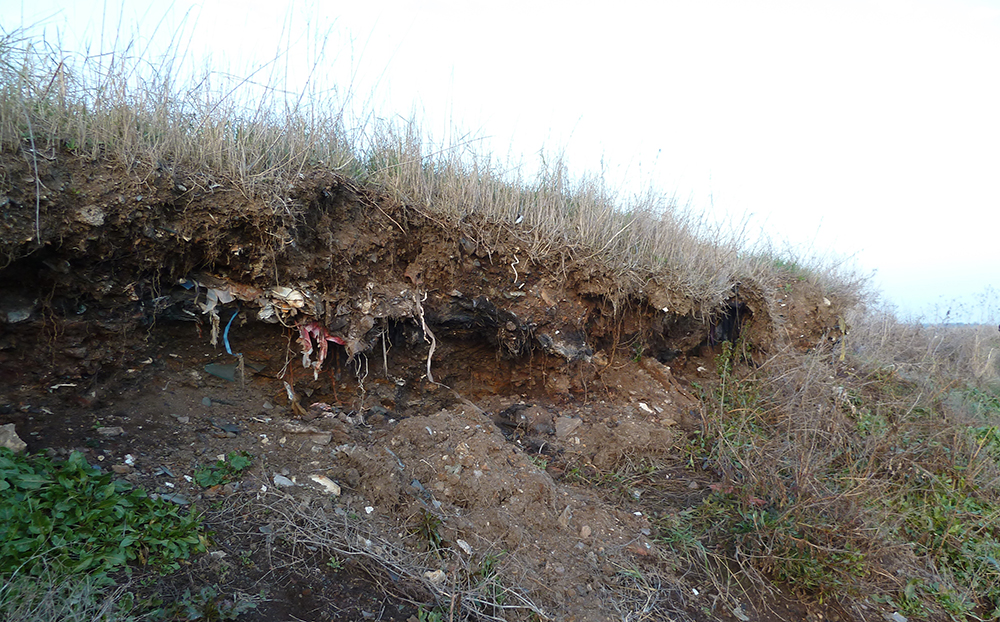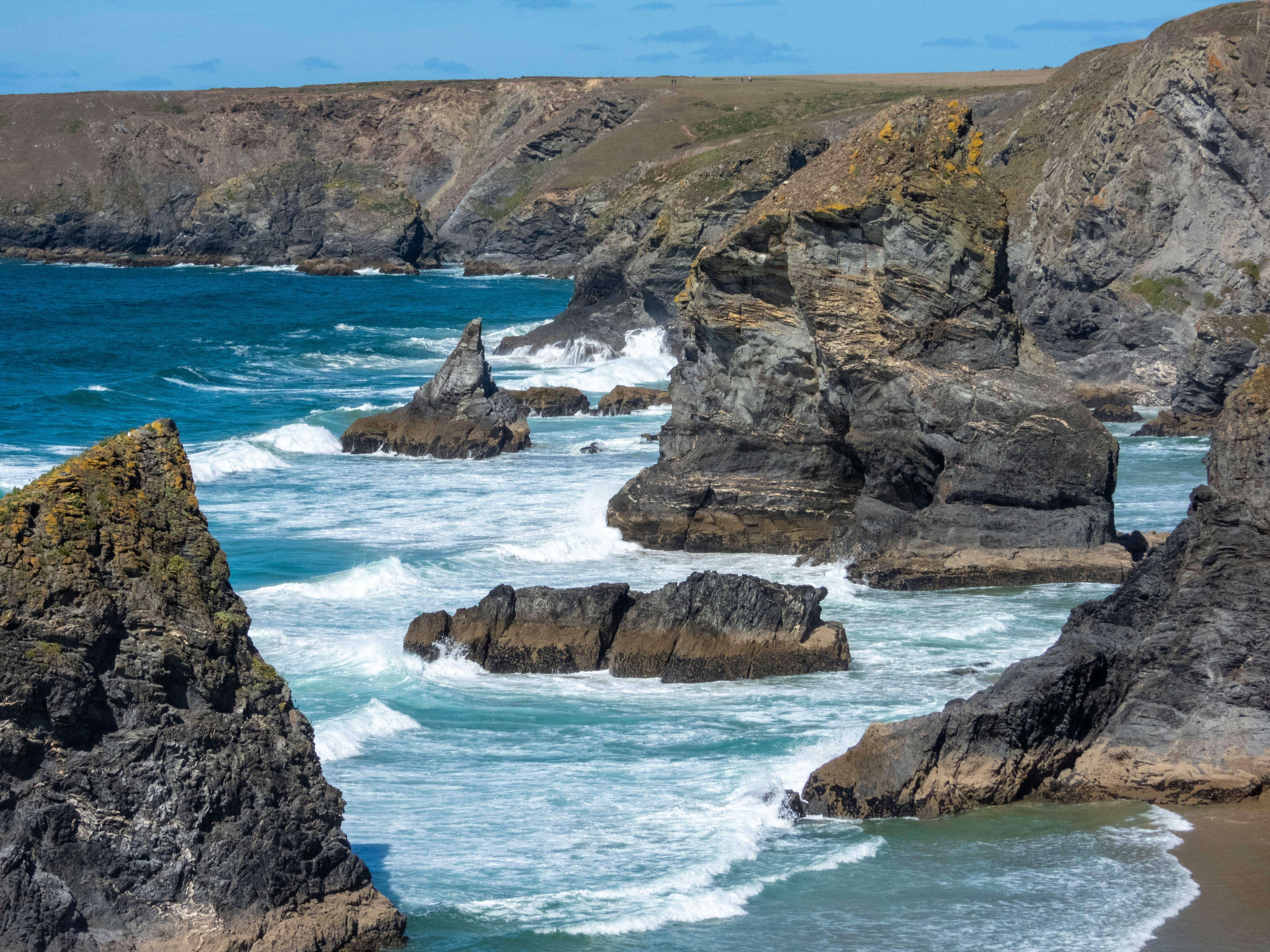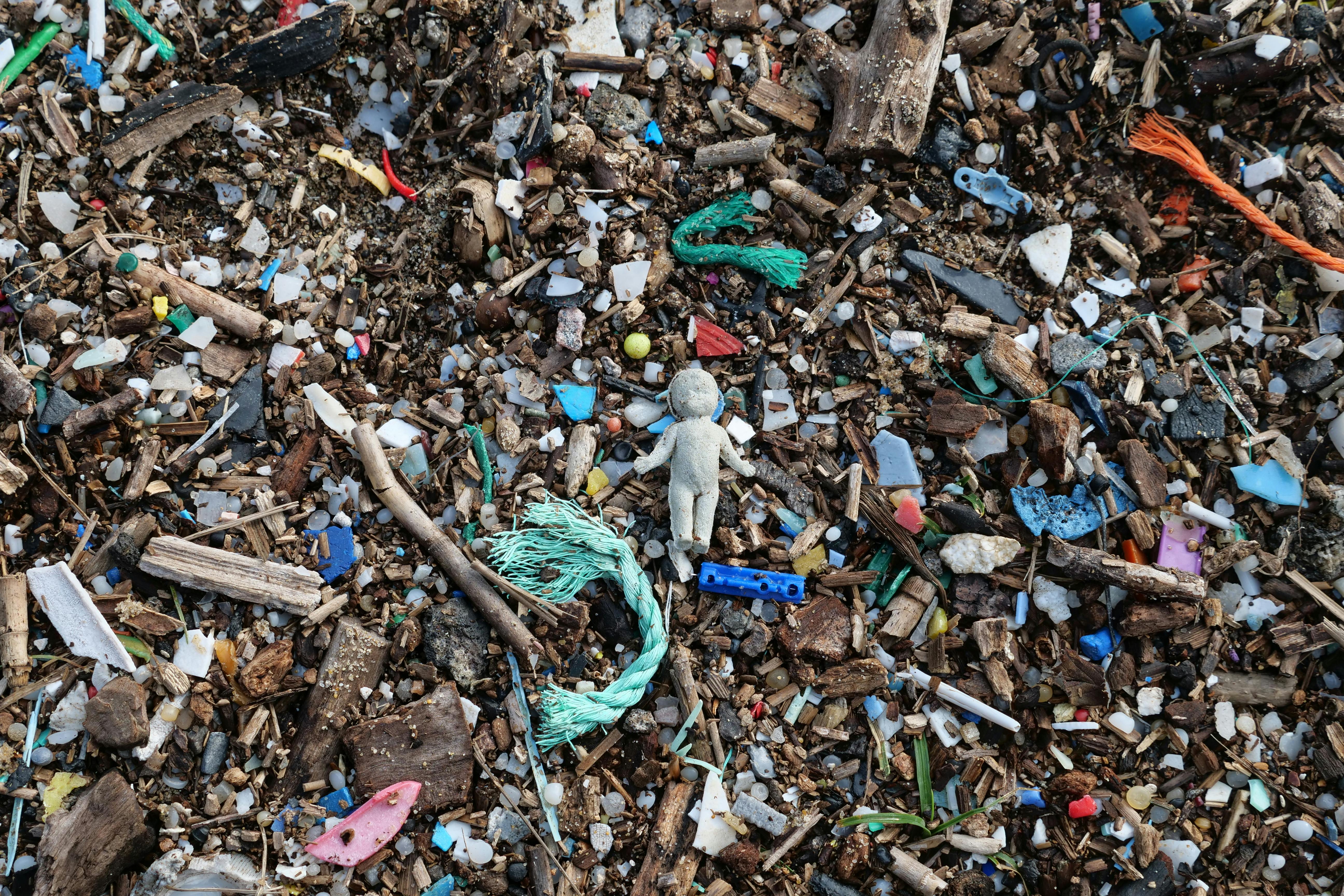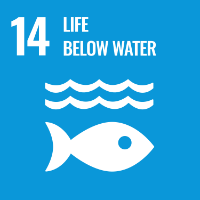
Eroding our future – Building resilient coastal communities
Eroding our future – Building resilient coastal communities
In collaboration with
- James Brand PDRA
- Francis O’Shea, PhD student
- Shudan Xue, PhD student
- Arcadis
- Environment Agency
- Essex County Council
- Construction Industry Research and Information Association
- University of Southampton
At a glance
- Pollution from historic coastal landfills (CHLs) poses a significant risk to the environment, particularly in the context of climate change.
- Ongoing research led by Professor Kate Spencer investigates the interconnected challenges of climate change, coastal flooding, erosion, and the legacy of historic waste in the UK, focusing on building resilience for coastal communities and ecosystems.
- The research aims to highlight the urgent need for scalable coastal resilience measures to address the accelerating risks of climate change, identifying gaps in current shoreline management policies that fail to account for legacy coastal waste.
- CHLS pose a significant threats to both aquatic ecosystems and human health, impacts need to be understood to create readily available methodologies for solution.
Assessing coastal erosion risks
Coastal communities in the UK are increasingly threatened by the compounded effects of climate change, coastal flooding, and erosion, particularly due to the legacy of historic waste sites. Over 1,700 coastal landfills and 3,000 hectares of contaminated land are at risk, with pollutants like asbestos and heavy metals potentially entering ecosystems. This pressing issue prompted the “Resilience of Anthropocene Coasts and Communities” (ResAnth) project, led by Professor Kate Spencer, to investigate how these risks impact both communities and coastal environments.
Led by Queen Mary University’s Professor Kate Spencer and colleagues, in collaboration with the Environment Agency and researchers from Kings’ College, Bradford, Glasgow and Sunderland University, focuses on regions such as East Anglia and the Thames Estuary. The project will use a multidisciplinary approach, incorporating natural capital accounting and community engagement to address these risks.
The potential impact of research into CHLs has transitioned from not just being about the natural environment but being about people and the implications for coastal community security and resilience.

Research
Over the next three years, the ResAnth project will assess coastal risks in East Anglia, South-West England, and South-East Scotland through a multidisciplinary approach. Through integration of regional flood, erosion, and pollution data, with site-specific mapping, coastal erosion and historic waste will be examined. The team will use natural capital accounting to gauge the impact on marine ecosystems, engaging communities through methods including a "Community Atlas" to document changes and influence policy. An Intervention Toolkit and Training Programme will disseminate findings to communities, policymakers, and practitioners, aiming to develop evidence-based strategies to mitigate risks and guide effective coastal interventions.

Identifying critical coastal areas for targeted efforts
The research highlights the vulnerability of aquatic ecosystems and communities to hazardous pollutants being released from CHLs into marine environments. It was revealed that 30% of England's protected coastlines and bathing water catchments are at risk from CHL pollution. More than 1,200 sites face potential tidal flooding, with 10% at risk of erosion by 2050.
High profile influence
Professor Spencer and her team’s ongoing research has led to increased awareness of the issues surrounding CHLs at the local and national levels. Government bodies like DEFRA are now informed by this research, leading to best-practice guidelines in the waste industry. The work has influenced waste management policies and has contributed to steering committees within DEFRA. Additionally, the research has been featured in public media, including:
- BBC Radio Four – Costing the Earth 2021/22 and Rare Earth 2023
- “Wasteland” a book on the dirty truth about what we throw away by Oliver Franklin-Wallis
Enhancing community resilience
Previous findings from this body of research have directly informed shoreline management practices in Essex, South Suffolk, and the Thames Estuary. Having been cited in an All-Party Parliamentary Group coastal communities inquiry, it was recommended that methodologies need to be readily available to help interested parties tackle the solution. A £2.9 million UKRI/DEFRA grant has been awarded to enhance resilience in coastal communities facing landfill pollution through the ResAnth project. These outcomes ensure that communities will be better prepared for the environmental and public health risks posed by CHLs.
Key takeaways
- Coastal communities and environmental agencies must prioritize the monitoring and management of CHLs to prevent future pollution risks.
- National policy frameworks should integrate findings from this research to bolster coastal defenses and mitigate the impacts of climate change.
- Collaboration between environmental scientists, policymakers, and local communities is essential to protect vulnerable coastlines from historic landfill pollution.
Sustainable Development Goals
 This project supports SDG 14, Life Below Water, by tackling the pervasive issue of pollution from historic coastal landfills, which threatens marine ecosystems and coastal communities. By investigating the impacts of these pollutants and developing strategies for coastal resilience, the project enhances our ability to protect and restore ocean health. Its multidisciplinary approach not only aims to mitigate environmental damage but also fosters sustainable practices and informed policymaking, contributing to the broader goal of safeguarding life below water.
This project supports SDG 14, Life Below Water, by tackling the pervasive issue of pollution from historic coastal landfills, which threatens marine ecosystems and coastal communities. By investigating the impacts of these pollutants and developing strategies for coastal resilience, the project enhances our ability to protect and restore ocean health. Its multidisciplinary approach not only aims to mitigate environmental damage but also fosters sustainable practices and informed policymaking, contributing to the broader goal of safeguarding life below water.
